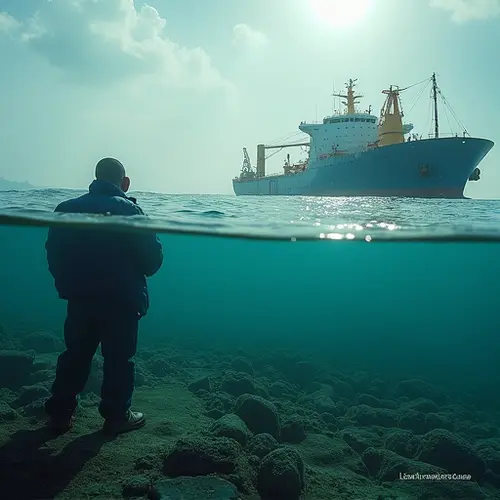
Historic Agreement Reached on Ocean Floor Resource Extraction
After nearly ten years of intense negotiations, 168 nations have approved a landmark treaty regulating deep sea mining operations in international waters. The agreement, finalized during the International Seabed Authority's (ISA) 30th session in Kingston, Jamaica, establishes a framework for balancing mineral resource extraction with environmental protection in the Earth's most unexplored ecosystems.
The Path to Regulation
The treaty creates mandatory environmental impact assessments before any mining operations can begin. Mining companies must now submit detailed plans demonstrating how they'll avoid damaging hydrothermal vents, seamounts, and nodule fields that host unique biodiversity. "This represents the most significant ocean governance agreement since UNCLOS," stated ISA Secretary-General Leticia Carvalho during the closing ceremony.
Key Provisions and Enforcement
The agreement establishes protected areas covering 30% of the Clarion-Clipperton Zone between Hawaii and Mexico, where most polymetallic nodules are located. An independent monitoring body will conduct surprise inspections of mining operations, with penalties including license revocation for violations. Revenue sharing provisions require mining operators to contribute 7.5% of profits to marine conservation funds and technology transfer programs for developing nations.
Scientific Breakthrough Influences Policy
The timing coincides with a groundbreaking study revealing "dark oxygen" production around mineral nodules. "This discovery of chemosynthetic life fundamentally changes our understanding of deep sea ecosystems," explained marine biologist Dr. Evelyn Torres. The research directly influenced the treaty's stringent habitat protection measures.
Industry and Environmental Reactions
While mining companies like The Metals Company express cautious optimism about regulatory certainty, environmental groups remain divided. Greenpeace calls the treaty "a critical first step" but continues advocating for a complete moratorium. Meanwhile, electric vehicle manufacturers welcome the potential for ethical sourcing of cobalt and nickel essential for batteries.
The treaty takes effect in January 2026, with the first commercial operations expected in the Clarion-Clipperton Zone by late 2027. All existing exploration contracts must now comply with the new environmental standards within 18 months.

 Nederlands
Nederlands
 English
English
 Deutsch
Deutsch
 Français
Français
 Español
Español
 Português
Português